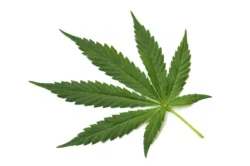Drug Addiction: What You Need to Know

Despite the fact that the U.S. Surgeon General released a report in 2016 that stated 21 million Americans are struggling with addiction, stigma still remains. This often makes people reluctant to get the help they need. In order to encourage you to get help for yourself or a loved one, there are important facts about drug addiction, clinically known as substance use disorder, to take into consideration.
1. Addiction is a disease
One of the biggest misconceptions about addiction is that it is a choice. In reality, addiction is a disease. People living with this condition do not choose to be addicted. Someone who is struggling cannot simply stop taking drugs on their own. They must seek professional treatment.
Although individuals make the voluntary choice to start using, the effects of the drug soon trigger chemical changes in the brain that lead to addiction. Substance use releases dopamine, a chemical associated with pleasurable experiences. Drugs have a more powerful effect than the average pleasurable experience; they may release up to ten times the amount of dopamine, making them extremely intoxicating.
The excessive amount of dopamine overwhelms the brain and rewires it to crave that substance. Normal, pleasurable activities start to have no appeal. Eventually, the brain builds up a tolerance to the drug so individuals must use more of the substance to get the same effect.
In other words, people living with addiction are compelled to use substances because of changes in the brain they cannot control.
2. You can become addicted to any drug
Drug addiction is often associated with illegal substances, but the truth is that any type of drug can pose a risk for addiction, including legal prescription drugs.
People may turn to drugs for a variety of reasons.
- Peer pressure – Many people are first exposed to drugs in the teenage years, when many of their peers are experimenting with substance use;
- Stressful life events – A stressful event like job loss, a death in the family, overwhelming debt or broken relationships can drive an individual to use drugs for temporary relief;
- Trauma – Past traumatic experiences can leave an individual with severe emotional pain. The individual may use drugs to find relief from the trauma;
- Mental health – Individuals with a mental health condition may turn to drugs as a way to cope with their symptoms. A 2014 report from the Substance Abuse and Mental Health Services Administration (SAMHSA) found that 9 million adults in the United States had both a substance use disorder and a mental health disorder;
- Chronic pain or illness – People suffering from chronic pain are often prescribed painkillers. They may become addicted to these strong opioids and seek out more, or illegal, substances.
Many people take drugs without realizing the serious risk of addiction. Whatever the reason someone starts using drugs, they are opening themselves up to a potential addiction every time they abuse substances.
3. There are recognizable signs of drug addiction
Often other people will be able to recognize if an individual is addicted by picking up on certain behavioral, physical or psychological signs.
Behavioral
- Neglecting responsibilities at work, school and/or home;
- Isolating from family and friends;
- Devoting less time to hobbies;
- Reckless, dangerous behavior;
- Legal troubles;
- Problems at work or school;
- Increasing frequency and/or amount of drug use;
- Using more of a drug to get the same effect (tolerance);
- Trying, and failing, to cut back on use.
Physical
- Weight loss or gain;
- Bloodshot eyes;
- Dilated or small pupils;
- Incoherent or slurred speech;
- Nosebleeds;
- Lack of personal hygiene;
- Shakiness;
- Experiencing withdrawal symptoms when not using.
Psychological
- Changes in personality;
- Mood swings;
- Restlessness;
- Fearfulness;
- Paranoia;
- Seeming disconnected from reality;
- Experiencing hallucinations or sensory perceptions that aren’t real.
Just because a sign is present does not mean a drug addiction is inevitable. However, frequent or multiple signs could indicate that professional help should be considered.
4. There are health consequences from drug use
Drugs have a powerful and often adverse effect on physical health. Someone who regularly uses substances will experience a variety of short-term and long-term health effects.
Short-term health effects include:
- Changes in mood, blood pressure, heart rate and appetite;
- Psychosis;
- Difficulty sleeping;
- Stroke or heart attack;
- Overdose;
- Death.
Long-term drug use can lead to:
- Heart disease;
- Lung disease;
- Cancer;
- HIV/AIDS;
- Hepatitis.
Additionally, substance use can also lead to a new or worsening mental health disorder, or a mental health disorder can cause substance use as a method of coping. This is known as a dual diagnosis, or a co-occurring substance use and mental health disorder.
5. Teenagers are at greater risk
According to the National Institute on Drug Abuse, about 70 percent of teens will have tried alcohol and half will have taken an illegal drug by their senior year of high school. The adolescent brain is still developing, and this puts teens at increased risk of repeat drug and alcohol use. Substance abuse often leads to addiction and can cause serious health issues. Additionally, as age of first use decreases, addiction risk increases.
6. There is help for drug addiction
While individuals need to actively work on recovery, that doesn’t mean recovery is impossible.
If you or a loved one is living with a drug addiction, know that there are treatment options that work, including:
- Detoxification;
- Inpatient or residential treatment;
- Partial hospitalization treatment;
- Intensive outpatient programs;
- Outpatient counseling;
- Medication Assisted Treatment.
Finding a program that is right for you will help you sustain long-term recovery.
7. Recovery Is possible
If you or someone you know is living with addiction, remember that recovery is a real possibility. At Rehab After Work, we help individuals who are affected by the disease of addiction. With locations throughout eastern Pennsylvania, we offer a variety of programs for adults and teens. Get in touch with us to start your recovery today by calling 610-644-6464.








